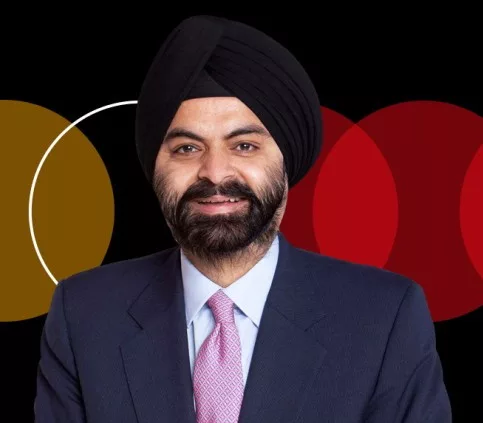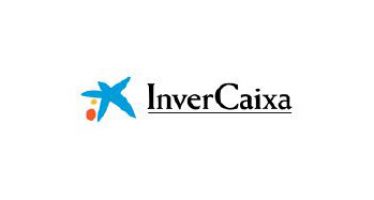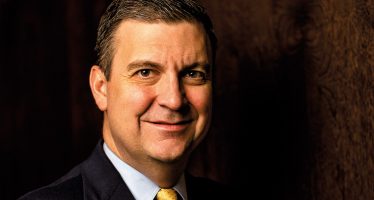Ajay Banga, former Mastercard CEO
Never has the role of moral leadership played a more important or challenging role in defining the success of a company’ — Ajay Banga
Mastercard’s former CEO Ajay Banga currently serves as vice-chairman at General Atlantic, but the US is backing him for World Bank presidency.
 Banga, a naturalised US citizen, has begun a world tour to lay out his credentials for the position. It kicked off in March in the Côte d’Ivoire, with a meeting with the president of the African Development Bank Group, Akinwumi Adesina. Banga pledged to partner with Adesina and the bank to mobilise private sector capital — as well as private sector ingenuity and innovation — to tackle the world’s most pressing problems.
Banga, a naturalised US citizen, has begun a world tour to lay out his credentials for the position. It kicked off in March in the Côte d’Ivoire, with a meeting with the president of the African Development Bank Group, Akinwumi Adesina. Banga pledged to partner with Adesina and the bank to mobilise private sector capital — as well as private sector ingenuity and innovation — to tackle the world’s most pressing problems.
He highlighted inequality, short-sightedness and the tension between humanity and Nature as major concerns — challenges exacerbated by the pandemic, environmental degradation and ripple effects from the Russia-Ukraine war.
Ajay Banga was born and raised in India. After graduating with honours from his undergraduate economics programme, he went on to obtain the Indian equivalent of an MBA. He has gained vast business experience over the past four decades, serving in leadership roles at major multinational companies.
In 1981, Banga began a 13-year career with Nestlé spanning sales, marketing, and general management. He later joined PepsiCo and helped the conglomerate to launch Pizza Hut and KFC franchises in India. He spent another 13 years at Citigroup, where he led the group’s international consumer operations and spearheaded its global microfinance strategy. He spent his last year at Citi as chief executive of the bank’s Asia-Pacific business, splitting time between Hong Kong and Citi’s headquarters in New York.
Banga joined Mastercard in 2009 as the group’s president and chief operating officer. Within a year, he was promoted to president and CEO. During Banga’s decade-long tenure as Mastercard chief, the card company saw revenue triple — and market value increase tenfold. Banga helped steer the payment firm toward emerging tech such as cybersecurity and data analytics — which ended up generating around half of the company’s revenue.
During a 2020 interview with BQ Prime, Banga called Mastercard’s embrace of innovation and diversification a “real change-maker”.
“The biggest realisation that drove this was to define our competition — not as other payment networks, but as the wider environment of cash,” he said. “That just changed everything: how we approach the market, how we approach technology, how we approach financial inclusion, and our commitments to financial inclusion over the years.”
Johannes Linn, a former World Bank vice-president, endorses Banga’s bid: “Being from a developing country originally, and having grown up in India, you know, I’m sure he brings a perspective to the development business. Secondly, his successful career, especially in the finance domain, is very important right now.”
But Scott Morris, a senior fellow at the Centre for Global Development, warns that Banga might find it challenging to build consensus around global-warming policies. Despite the broad-spectrum appeal of the climate finance agenda, there are trade-offs — and competing priorities for funding. Morris believes Banga will have a “fairly tricky landscape” to navigate — particularly with regard to China.
“It’s really hard to see how you make progress on the climate agenda at the World Bank if you don’t have some kind of effective relationship with the Chinese,” Morris told NPR. “And, you know, that’s going to be squarely on his agenda in trying to manage that, at a time when his largest shareholder and the country that nominated him do not really have a pro-engagement stance with the Chinese.”
Voting on the World Bank nomination is expected in May; the president’s position is to be vacated by David Malpass a year shy of his four-year tenure. If Banga secures the role, he will head an organisation with billion-dollar budgets to fight poverty and promote people, peace, and prosperity on a global scale.
If elected, Banga intends to surround himself with skilled professionals who show strong convictions and commitment. “The leaders who deliver results, now and in the future, will be those who are able to build inclusive cultures and execute under rapidly changing circumstances,” he said.
“You need to harness the collective uniqueness of those around you to widen your field of vision. In the past, leaders were chosen for what they could deliver, but tomorrow’s leaders will be defined by their good judgement.
“Never has the role of moral leadership played a more important or challenging role in defining the success of a company.”
You may have an interest in also reading…
CaixaBank’s InverCaixa Gestión: Spain’s Leader in Asset Management
CaixaBank is Spain’s third largest banking group and the biggest in the domestic market by business volume with a customer
Delta Group: Helping the World Save on Energy
Delta, founded in 1971 and headquartered in Taiwan, is a global leader in power and thermal management solutions and a
In Conversation with Vector Group’s Bryant Kirkland: Still Crazy (About Work) After All These Years — Fun Factor Is Running Strong for Kirkland
Bryant Kirkland is senior vice-president, chief financial officer and treasurer of Vector Group. He held the same roles at New


















































































